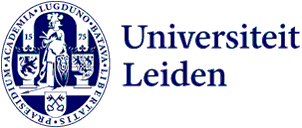
Collaboration with Leiden University: Rector of College of Europe visits
Frederica Mogherini, Rector of the College of Europe, visited Campus The Hague on 23 November for the official launch of the Europe Hub. This new interdisciplinary platform for research and teaching at Leiden University focuses on the social and governance challenges facing Europe.
Roundtable discussion on collaboration
The visit began with a roundtable discussion with members of the Europe Hub. Antoaneta Dimitrova, Professor of Comparative Governance, welcomed everyone and introduced the Europe Hub. A unique initiative, said Dimitrova, in which researchers from Leiden University from different backgrounds promote research and teaching on Europe and the European Union. The faculties of Law, Humanities, Governance and Global Affairs and Social and Behavioural Sciences were represented, but everyone was welcome. ‘Interdisciplinary collaboration is the backbone of the Europe Hub’, said Dimitrova.
The College of Europe and the Europe Hub are keen to collaborate on teaching and research on the European Union. Mogherini mentioned how the College of Europe has set up a scholarship programme to welcome more students to the College of Europe. And as of this year, the Dutch government is providing ten grants especially for Dutch students. This is how Mogherini wants to provide opportunities for students from Leiden University, for example, to increase the diversity at the College of Europe.

Diversity, increasing education and the crucial role of lecturers
One of the focal points of the roundtable discussion was diversity: Mogherini values diverse perspectives on the European Union being shared at the College of Europe. They can ensure this by welcoming a wide selection of professors and students while also striving for gender equality, she said. Less than 20 per cent of their students come from outside the European Union: ‘Of these, five to seven per cent come from outside Europe. We have students from Turkey, Morocco and Egypt. And a few more from the United States and Latin America.’
Another focus of the roundtable discussion was Mogherini’s desire to expand teaching focusing on the European Union. The College of Europe currently has two campuses: in Bruges, Belgium and Natolin, the southernmost district of the Polish capital Warsaw. A third campus will soon open in Tirana, the capital of Albania, where a new master’s degree in European integration will be taught.
Lecturers play a crucial role in promoting diversity.
The main conclusion of the roundtable discussion was that Mogherini needs the help of the lecturers present to raise awareness of the various College of Europe study programmes. Since ‘almost all students come to us because a lecturer had recommended it to them’, said Mogherini, lecturers can play a crucial role in promoting diversity within the College of Europe and ensuring that students enter the workforce with a critical eye and broad knowledge of various perspectives on the European Union.
Afternoon programme
The visit concluded with a lecture by Mogherini, a Q&A with students and the official launch of the Europe Hub. In her lecture ‘The EU and the changing world order’, Mogherini focused on the increasing polarisation in the world, its impact on the world order and ways in which the EU can remain relevant in the changing world order. The Q&A explored this changing world order, with questions about the EU’s relations with China and Russia and ways the EU can cooperate with the United States if Trump is re-elected.

Text: Jeanne Viet
Photos: Arash Nikkhah
